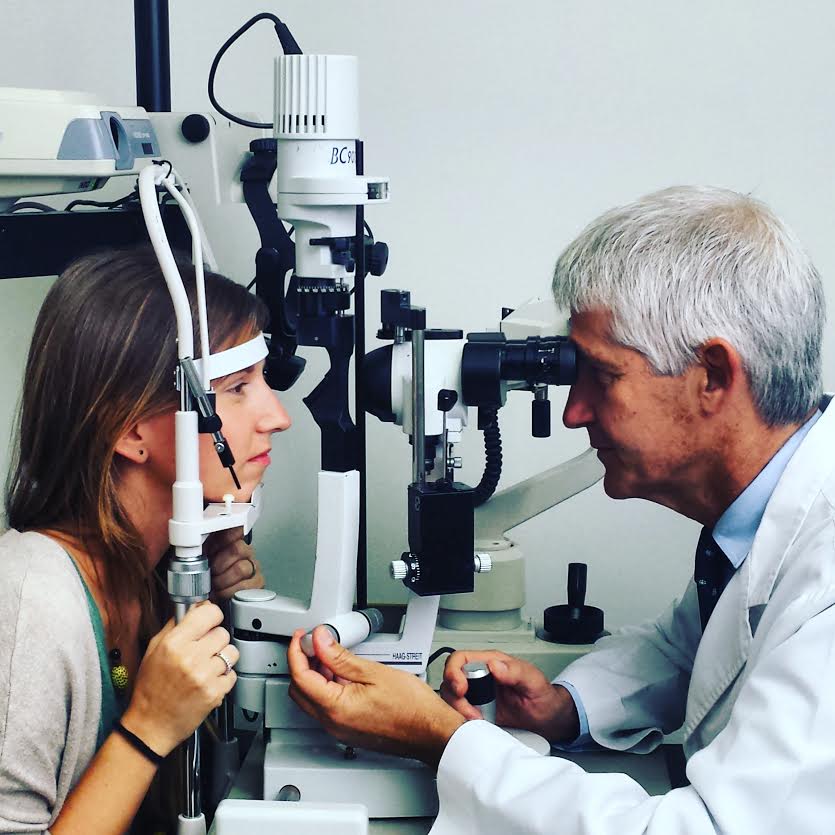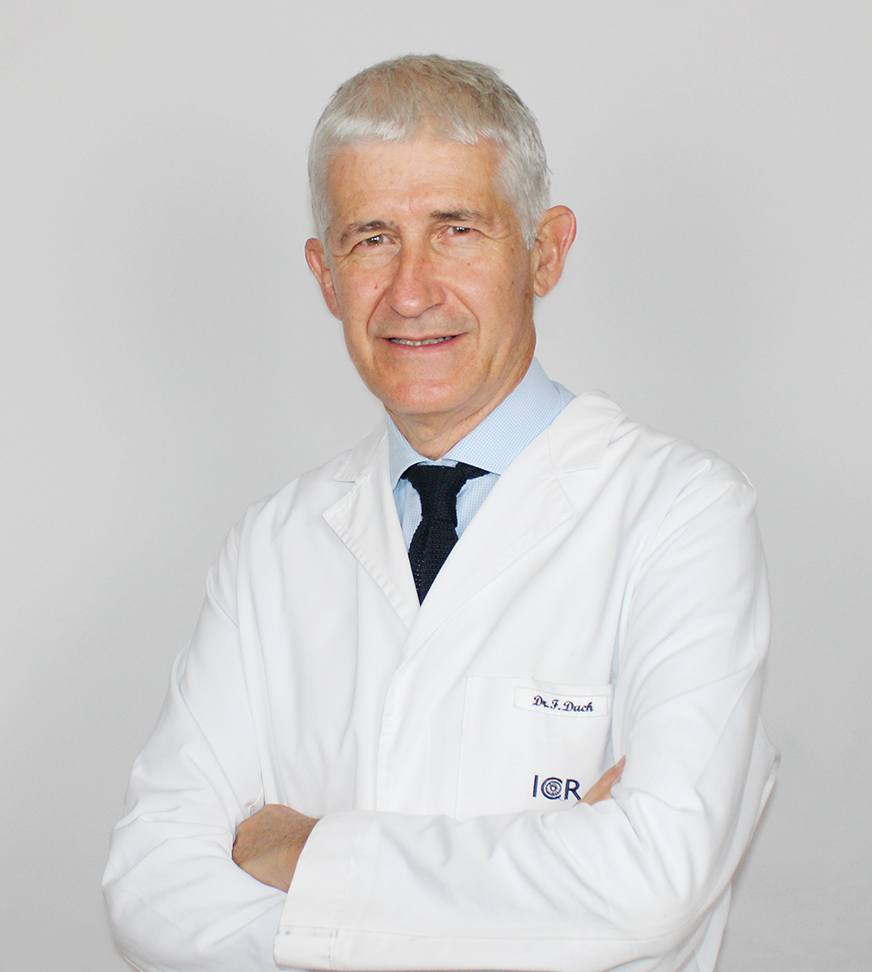
Dr. Francesc Duch: The cornea is a precious eye structure. It is sheer as no other body part, it protects the interior of the eye, it filters and focuses light rays and provides the sparkle which defines a person’s way of looking… It is an extremely sophisticated dome, made up of water, collagen, and cell groups which maintain its function and architecture. Breakthroughs in Refractive Surgery and the development of new diagnostic methods and laser treatments enable to correctly shape it using surgical techniques which correct refraction imperfections such as myopia, hypermetropia and astigmatism.
Several years ago, some of us already appreciated the importance of preserving intact the cornea and of considering treatments other than laser, but the truth is that not many people supported the idea. As it usually happens, time puts everything in its place. Nowadays, preserving the cornea is a dictate approved by all surgeons. New laser technologies are capable of this preservation, and are much more friendly in this regard. But intraocular lenses are actually the technology which allow for zero intervention inside this precious structure. Keeping the cornea intact can be also relevant in terms of achieving a better vision quality in light of a future operation, such as a cataract surgery.
Why are these lens made of collamer? Which benefits offers this material?
Collamer is a collagen copolymer of a high degree of purity. It is defined by its high transparency, which allows for high quality vision after surgery and a huge flexibility which eases lens implant and a stable and proper positioning within the eye. It is a highly biocompatible material, which causes no kind of reaction in eye tissues in such a way that the eye does not reject it.
Optic quality, together with the ease of implantation and biocompatibility make it the perfect choice for the design of long life eye lenses implanted within the eye, as it always provides an excellent vision.
Article published in “El Mundo” newspaper on 8th October 2015

Contact us or request an appointment with our medical team.